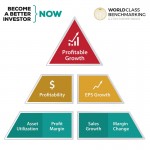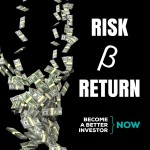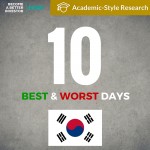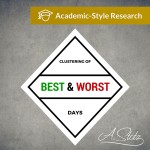Academic-Style Research
What Is More Important, Profitability or Growth?
In this study, we decided to see whether profitability or growth had a greater effect on the value increase of a business.
We found that “High profitability” companies generated more than 2x the market return, and “high growth” companies returned more than 3x the market over the past 20 years.
Read MoreHow to Deal with Corporate Governance in Asia
In many stock markets around the world there are legislation and/or listing rules that ensure some level of shareholder protection and corporate governance. In Asia this is not always the case and the level of corporate governance varies considerably between countries.
In this research we consider the state of corporate governance in Asia and give some thoughts on how to analyze the corporate governance of a company in a location where there are no corporate governance code or reports.
Read MoreProfitable Growth is What Matters for Long-Term Value
World Class Benchmarking measures the financial performance of a company through Profitable Growth. Our database includes about 27,000 companies worldwide and each company is benchmarked versus all its global sector peers.
Learn more about it in this post, and why Profitable Growth is what matters to you as an investor.
Read MoreAre financial analysts’ earnings forecasts accurate?
This A. Stotz Academic-Style Research is revealing findings from Andrew’s dissertation and focuses on answering the question: Are financial analysts’ earnings forecasts accurate?
Read the full article to learn the answer…
Read MoreIncreased Correlation But Stock Pickers Can Still Diversify
This A. Stotz Academic-Style Research focus on answering the question: Decoupling or Increased Correlation Across the Globe?
We look into correlation among asset classes and how this correlation has changed over time. Read the full article to learn how to diversify effectively.
Read MoreDoes High Risk Mean High Return?
This A. Stotz Academic-Style Research focus on answering the question: Does high risk mean high return?
CAPM suggests that beta is a measure of risk and that a high-beta stock should yield a higher return than a low-beta stock. Our findings suggest something different…
Read MoreThe 10 Best and Worst Days: Korea
This A. Stotz academic-style research focus on trying to understand the impact of being out of the Korean market on either the best or the worst days. We also look at clustering trying to figure out why you would be out of the market on those days. Missing only The 10 Best or Worst Days can have huge impact on your terminal wealth.
Read MoreAvoiding The 10 Worst Days Increases Your Return Massively
We got a lot of comments from people saying they read The 10 Best Days, they liked it, it was helpful; we also started to get some questions, one in particular. So, this A. Stotz academic-style research answers the question: What impact would missing The 10 Worst Days in a 10-year period have on terminal wealth?
Read MoreClustering of Best and Worst Days
This post follows on from our previous 10 Best Days blog post. This A. Stotz academic-style research answers the question: How likely it is that an investor would miss the 10 best days?
Read MoreThe 10 Best Days Is Not a Myth
Behavioral economics teaches us that our emotions play a major part in our trading. This A. Stotz academic-style research answers the question: What would the impact on terminal wealth be if an investor missed the 10 best-return days in the U.S. market over a 10-year period?
Read More








